Tag Archives: Greenpeace
Western and Central Pacific Fisheries Commission discusses fishing limit of Pacific bluefin tuna
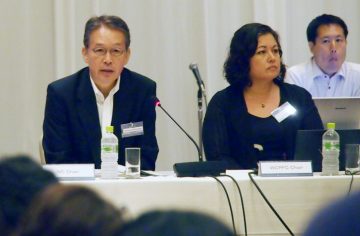 An international fisheries commission began discussing details of fishing restrictions for bluefin tuna in the northern Pacific at a meeting in southwestern Japan on Monday amid concerns about overfishing. At a subcommittee meeting of the Western and Central Pacific Fisheries Commission held through Friday in the city of Fukuoka, participants are discussing the possibility of invoking a catch limit based on Japan’s proposal. The panel is discussing specific control measures with an eye to reaching a formal agreement within this year. Meanwhile, nongovernmental organizations Greenpeace and the Pew Charitable Trusts have issued a statement requesting the WCPFC to immediately implement a 2-year moratorium on all commercial fishing for Pacific bluefin tuna. Read the rest here 15:10
An international fisheries commission began discussing details of fishing restrictions for bluefin tuna in the northern Pacific at a meeting in southwestern Japan on Monday amid concerns about overfishing. At a subcommittee meeting of the Western and Central Pacific Fisheries Commission held through Friday in the city of Fukuoka, participants are discussing the possibility of invoking a catch limit based on Japan’s proposal. The panel is discussing specific control measures with an eye to reaching a formal agreement within this year. Meanwhile, nongovernmental organizations Greenpeace and the Pew Charitable Trusts have issued a statement requesting the WCPFC to immediately implement a 2-year moratorium on all commercial fishing for Pacific bluefin tuna. Read the rest here 15:10
Finally, courage to counterpunch the green bullies – Greenpeace Faces a Resolute Opponent
 When the name Resolute was chosen in 2011, after the merger of Bowater and Abitibi-Consolidated, the Canadian company, a global leader in the forest products industry and the largest producer of newsprint in the world, likely didn’t know what a harbinger it was. Today, it stands alone, set in purpose, with firmness and determination. Displaying the rare courage to stand up to the typical environmental extremists’ campaign of misinformation and shaming designed to shut it down, Resolute Forest Products is fighting back. Many people are probably unaware of the shakedown tactics used by groups whose touchy-feely names belie their true goals. Like most companies, Resolute originally went along. As Peter Foster explains in the Financial Post: “a cabal of radical environmental non-governmental organizations, ENGOs — including Greenpeace, ForestEthics and the David Suzuki Foundation — agreed to stop their campaigns of customer harassment in return for the members of the Forest Products Association of Canada, FPAC, agreeing to sanitize a swathe of the Canadian Boreal forest, and to ‘consult’ on development plans. Astonishingly, governments played no part.” The result was the Canadian Boreal Forest Agreement. The ENGOs ultimately aspired to put the majority of the Boreal forest off limits — ending economic development. Regarding the Greenpeace-promoted concept of “intact forest landscape protection,” Laurent Lessard, Quebec’s Minister of Forest, Wildlife and Parks, says it threatens “absolutely devastating” economic implications. Read the story here 10:27
When the name Resolute was chosen in 2011, after the merger of Bowater and Abitibi-Consolidated, the Canadian company, a global leader in the forest products industry and the largest producer of newsprint in the world, likely didn’t know what a harbinger it was. Today, it stands alone, set in purpose, with firmness and determination. Displaying the rare courage to stand up to the typical environmental extremists’ campaign of misinformation and shaming designed to shut it down, Resolute Forest Products is fighting back. Many people are probably unaware of the shakedown tactics used by groups whose touchy-feely names belie their true goals. Like most companies, Resolute originally went along. As Peter Foster explains in the Financial Post: “a cabal of radical environmental non-governmental organizations, ENGOs — including Greenpeace, ForestEthics and the David Suzuki Foundation — agreed to stop their campaigns of customer harassment in return for the members of the Forest Products Association of Canada, FPAC, agreeing to sanitize a swathe of the Canadian Boreal forest, and to ‘consult’ on development plans. Astonishingly, governments played no part.” The result was the Canadian Boreal Forest Agreement. The ENGOs ultimately aspired to put the majority of the Boreal forest off limits — ending economic development. Regarding the Greenpeace-promoted concept of “intact forest landscape protection,” Laurent Lessard, Quebec’s Minister of Forest, Wildlife and Parks, says it threatens “absolutely devastating” economic implications. Read the story here 10:27
Greenpeace and Labour call for MPI to be investigated over fisheries mismanagement
 Prime Minister John Key is “sceptical” about a report’s claims that the number of fish caught is more than twice the number officially recorded. For the first time a report in collaboration with Auckland University provides a reconstructed picture of New Zealand’s marine catches dating back to 1950 – it reveals while 15.3 million tonnes of catch was recorded up until 2013, an estimated 24.7 million tonnes had fallen through the cracks. Greenpeace says government officials were aware of the recording botch-up but instead of fixing it, the Ministry for Primary Industries “deliberately covered it up”. Read the rest here 14:23
Prime Minister John Key is “sceptical” about a report’s claims that the number of fish caught is more than twice the number officially recorded. For the first time a report in collaboration with Auckland University provides a reconstructed picture of New Zealand’s marine catches dating back to 1950 – it reveals while 15.3 million tonnes of catch was recorded up until 2013, an estimated 24.7 million tonnes had fallen through the cracks. Greenpeace says government officials were aware of the recording botch-up but instead of fixing it, the Ministry for Primary Industries “deliberately covered it up”. Read the rest here 14:23
Ray Hilborn Responds to the opportunistic attack of Greenpeace
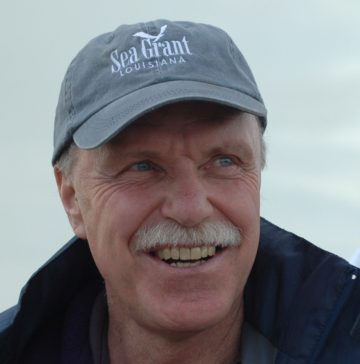 I would like to thank Greenpeace for offering this opportunity to advertise our research and its results. Greenpeace is unable to attack the science I and my collaborators do; science that threatens their repeated assertions that overfishing is universal and that the oceans are being emptied. On the contrary it is clear that where effective fisheries management is applied, stocks are increasing not declining, and this is true in North American and Europe as well as a number of other places. Overfishing certainly continues to be a problem in the Mediterranean, much of Asia and Africa. The timing of Greenpeace’s attack is not random. In two weeks I will receive the International Fisheries Science Prize at the World Fisheries Congress. http://international.fisheries.org/requestfor-nominations-for-the-2016-international-fisheries-science-prize/ This prize is awarded every four years by fisheries science organizations from a number of countries including the U.S., Australia and Japan. In my plenary address I will be showing where overfishing is declining or largely eliminated, as well as where it remains a problem. This is a message Greenpeace seeks to discredit. Instead of focusing on the science, Greenpeace has alleged that I failed to disclose “large amounts of money from the fishing industry and other corporate interests.” Read the rest here 12:43
I would like to thank Greenpeace for offering this opportunity to advertise our research and its results. Greenpeace is unable to attack the science I and my collaborators do; science that threatens their repeated assertions that overfishing is universal and that the oceans are being emptied. On the contrary it is clear that where effective fisheries management is applied, stocks are increasing not declining, and this is true in North American and Europe as well as a number of other places. Overfishing certainly continues to be a problem in the Mediterranean, much of Asia and Africa. The timing of Greenpeace’s attack is not random. In two weeks I will receive the International Fisheries Science Prize at the World Fisheries Congress. http://international.fisheries.org/requestfor-nominations-for-the-2016-international-fisheries-science-prize/ This prize is awarded every four years by fisheries science organizations from a number of countries including the U.S., Australia and Japan. In my plenary address I will be showing where overfishing is declining or largely eliminated, as well as where it remains a problem. This is a message Greenpeace seeks to discredit. Instead of focusing on the science, Greenpeace has alleged that I failed to disclose “large amounts of money from the fishing industry and other corporate interests.” Read the rest here 12:43
Greenpeace attacks University of Washington fishery scientist Ray Hilborn
 Ray Hilborn, a prominent University of Washington fishery scientist, is under attack from Greenpeace for sometimes leaving out mention of industry funding he receives in articles published in academic journals and elsewhere.In a letter sent Wednesday to university President Ana Mari Cauce, Greenpeace filed a complaint against Hilborn’s research practices, and asked for an investigation. Hilborn, over the years, has been a critic of Greenpeace as well as other environmental groups and researchers he accuses of overstating the impacts of fishing on marine resources. In the letter to Cauce, Greenpeace unleashed a broadside against the scientist. Greenpeace is attempting to label Hilborn an “overfishing denier,” comparing the professor to so-called climate-change deniers who are a minority in a scientific community that overwhelmingly accepts that fossil-fuel combustion contributes to global warming. Read the rest here 07:45
Ray Hilborn, a prominent University of Washington fishery scientist, is under attack from Greenpeace for sometimes leaving out mention of industry funding he receives in articles published in academic journals and elsewhere.In a letter sent Wednesday to university President Ana Mari Cauce, Greenpeace filed a complaint against Hilborn’s research practices, and asked for an investigation. Hilborn, over the years, has been a critic of Greenpeace as well as other environmental groups and researchers he accuses of overstating the impacts of fishing on marine resources. In the letter to Cauce, Greenpeace unleashed a broadside against the scientist. Greenpeace is attempting to label Hilborn an “overfishing denier,” comparing the professor to so-called climate-change deniers who are a minority in a scientific community that overwhelmingly accepts that fossil-fuel combustion contributes to global warming. Read the rest here 07:45
Ray Hilborn: Money-driven ENGOs a ‘worrying trend’
 “It’s become a protection racket,” said Ray Hilborn, speaking from his Seattle home. That’s the take of Hilborn — professor at the School of Aquatic and Fishery Sciences, University of Washington — on environmental non-governmental organizations (ENGOs), which he believes are holding increasing sway over the seafood industry. “Some would call it naked extortion, especially for retailers,” he explained. “You need to pay the likes of the WWF [World Wide Fund for Nature] and then follow their advice, just to keep Greenpeace away from your door. Because, if you don’t, Greenpeace will be picketing your store.” Read the article here 13:12
“It’s become a protection racket,” said Ray Hilborn, speaking from his Seattle home. That’s the take of Hilborn — professor at the School of Aquatic and Fishery Sciences, University of Washington — on environmental non-governmental organizations (ENGOs), which he believes are holding increasing sway over the seafood industry. “Some would call it naked extortion, especially for retailers,” he explained. “You need to pay the likes of the WWF [World Wide Fund for Nature] and then follow their advice, just to keep Greenpeace away from your door. Because, if you don’t, Greenpeace will be picketing your store.” Read the article here 13:12
Europeche accuses Pew of defending the ideas of “false and contrary” to the weight and impact science discussion forums, advisory councils and ideas.
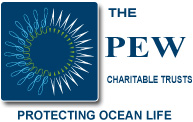 As fishermen provide more and more data and reap the benefits of their efforts to curb by-catches and fish more sustainably through technical methods so the big NGOs will respond in ever more aggressive ways as the evidence begins to undermine their attempts to indirectly and directly influence legislators – in this instance they have upset Europeche who have accused the Pew Foundation (an American charity like the Oak Foundation which sees fit to fund many anti-fishing activities here in Europe – High Fearnley-Whittingstall’s infamous FishFight being one to the tune of,,, Read the rest here 15:00
As fishermen provide more and more data and reap the benefits of their efforts to curb by-catches and fish more sustainably through technical methods so the big NGOs will respond in ever more aggressive ways as the evidence begins to undermine their attempts to indirectly and directly influence legislators – in this instance they have upset Europeche who have accused the Pew Foundation (an American charity like the Oak Foundation which sees fit to fund many anti-fishing activities here in Europe – High Fearnley-Whittingstall’s infamous FishFight being one to the tune of,,, Read the rest here 15:00
EU ministers OK Baltic catch limits; Envirocrat activists object
 The ministers reached the agreement Thursday night at a meeting in Luxembourg. In a statement, they said the limits take into account scientific advice as well as the EU’s recently changed Common Fisheries Policy. But Andrew Clayton, a spokesman for Pew Charitable Trusts, a non-governmental organization, said the limits, which concern 10 commercial fish stocks, exceed scientific recommendations in seven cases. Last year, he said, ministers exceeded scientists’ recommendations for herring, cod, plaice, Atlantic salmon and sprat. Greenpeace said,,, Read the rest here 13:56
The ministers reached the agreement Thursday night at a meeting in Luxembourg. In a statement, they said the limits take into account scientific advice as well as the EU’s recently changed Common Fisheries Policy. But Andrew Clayton, a spokesman for Pew Charitable Trusts, a non-governmental organization, said the limits, which concern 10 commercial fish stocks, exceed scientific recommendations in seven cases. Last year, he said, ministers exceeded scientists’ recommendations for herring, cod, plaice, Atlantic salmon and sprat. Greenpeace said,,, Read the rest here 13:56
NPFMC Bering Sea fishing decision based on science, not bias
 This week, the North Pacific Fisheries Management Council (NFPMC) ruled that it will not be placing a limit on trawl fishing in the Bering Sea’s Pribilof and Zhemchug canyons, despite claims by various NGOs that the practice places vulnerable coral in danger there. Greenpeace, taking the lead on the NGO protests of the NFPMC’s decision, suggested that the council was catering to fishing industry special interests; however,,, Read the rest here 13:39
This week, the North Pacific Fisheries Management Council (NFPMC) ruled that it will not be placing a limit on trawl fishing in the Bering Sea’s Pribilof and Zhemchug canyons, despite claims by various NGOs that the practice places vulnerable coral in danger there. Greenpeace, taking the lead on the NGO protests of the NFPMC’s decision, suggested that the council was catering to fishing industry special interests; however,,, Read the rest here 13:39
Repackaged, Warmed-Over PR Ploys From Greenpeace: Different Hashtag, Same Scam
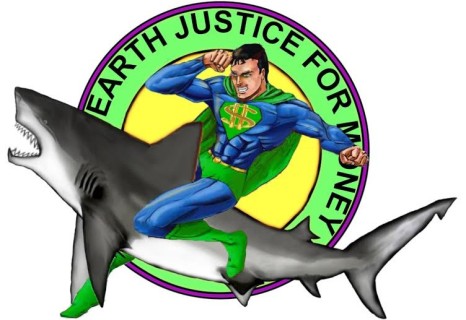 How many times can Greenpeace recycle the same old publicity stunts before they finally exhaust the gullibility of the news media? That seems to be the wager behind the global fundraising organization’s announcement of its latest manufactured attack on the seafood industry. In a press release Greenpeace executive John Hocevar—who lacks real-world expertise in fisheries management specifically and commercial enterprise generally—lists off imagined crimes against sustainability committed by the tuna industry and ominously warns “there is no future” for providing tuna to consumers. He threatens “a global pressure campaign” unless “the entire tuna industry” switches to fishing practices that he prefers. Pole and Line! Read the rest here 15:59
How many times can Greenpeace recycle the same old publicity stunts before they finally exhaust the gullibility of the news media? That seems to be the wager behind the global fundraising organization’s announcement of its latest manufactured attack on the seafood industry. In a press release Greenpeace executive John Hocevar—who lacks real-world expertise in fisheries management specifically and commercial enterprise generally—lists off imagined crimes against sustainability committed by the tuna industry and ominously warns “there is no future” for providing tuna to consumers. He threatens “a global pressure campaign” unless “the entire tuna industry” switches to fishing practices that he prefers. Pole and Line! Read the rest here 15:59
Judge rules against Oceana, Greenpeace in Stellar sea lion lawsuit over increased Aleutians fishing
 A US judge ruled against the US arms of Oceana and Greenpeace in a lawsuit in which the NGOs sought declaratory and injunctive relief against the National Marine Fisheries Service (NMFS), US Department of Commerce, and others, challenging recent authorization of increased industrial fishing in the western and central Aleutian Islands. Oceana and Greenpeace argued the defendants, groups involved in the federal groundfish fishery, violate the Endangered Species Act (ESA), the National Environmental Policy Act (NEPA), and the Administrative Procedure Act (APA). Read the rest here 18:17
A US judge ruled against the US arms of Oceana and Greenpeace in a lawsuit in which the NGOs sought declaratory and injunctive relief against the National Marine Fisheries Service (NMFS), US Department of Commerce, and others, challenging recent authorization of increased industrial fishing in the western and central Aleutian Islands. Oceana and Greenpeace argued the defendants, groups involved in the federal groundfish fishery, violate the Endangered Species Act (ESA), the National Environmental Policy Act (NEPA), and the Administrative Procedure Act (APA). Read the rest here 18:17
National Marine Fisheries Service deny petition from radical environmentalists to ban cod fishing
 A group of radical environmental groups including the Center for Biological Diversity and Greenpeace petitioned the National Oceanic and Atmospheric Administration’s National Marine Fisheries Service to shut down the fishery until it shows rebuilding progress. The agency said in a denial published in the Federal Register on July 10 that the current restrictions on cod fishing will “provide sufficient protection” to rebuild the stock. The denial also states that the fisheries service intends to monitor updated information about the cod stock,,, Read the rest here 18:02
A group of radical environmental groups including the Center for Biological Diversity and Greenpeace petitioned the National Oceanic and Atmospheric Administration’s National Marine Fisheries Service to shut down the fishery until it shows rebuilding progress. The agency said in a denial published in the Federal Register on July 10 that the current restrictions on cod fishing will “provide sufficient protection” to rebuild the stock. The denial also states that the fisheries service intends to monitor updated information about the cod stock,,, Read the rest here 18:02
Dear Greenpeace USA, We are in receipt of your petition, and are responding,,,

Wrecking the Planet, one campaign at a time!
We are in receipt of your petition, and are responding on behalf of member companies Bumble Bee, Chicken of the Sea, and StarKist. We’ve reviewed your petition and attached letter and have found several inaccurate aspects and outright misinformation that we would appreciate you address. While we always welcome feedback from consumers, it does concern us that some of the petition’s signatories appear to come from communities of questionable provenance like “Jerrabomberra, North Carolina”. It is our sincere hope that you have vetted and authenticated,,, Read the rest her 20:01
Cape Wind Project: A Tale of Crony Environmentalism (Part 2) Did Mass Audubon Sell its Soul to the Wind Industry?
 As an environmentalist and bird lover, it gives me no pleasure to criticize the largest conservation organization in New England; an organization of which I am a member. Personal conflict aside, it seems apparent that Massachusetts Audubon Society’s support for a massive industrial project threatens thousands of birds a year.,, Case in point: Cape Wind poses a serious threat to marine mammals, yet is one of their biggest cheerleaders. Cape Wind Project: A Tale of Crony Environmentalism Read part 1 here, Read part 2 here 15:51
As an environmentalist and bird lover, it gives me no pleasure to criticize the largest conservation organization in New England; an organization of which I am a member. Personal conflict aside, it seems apparent that Massachusetts Audubon Society’s support for a massive industrial project threatens thousands of birds a year.,, Case in point: Cape Wind poses a serious threat to marine mammals, yet is one of their biggest cheerleaders. Cape Wind Project: A Tale of Crony Environmentalism Read part 1 here, Read part 2 here 15:51
Greenpeace-friendly Boston Globe Botches Tuna Report
 From the Letter-Another symptom of how Ms. Zwirn indulges Greenpeace is that they are presented with virtually no skepticism or scrutiny — not on their ideology, nor their methodology, nor their expertise, nor the feasibility or consequences of the demands they make. Here are some easily confirmed facts, for instance, that might have been shared with readers: The methodology Greenpeace uses is entirely subjective, kept confidential, and unverifiable. They have precisely zero experience in fisheries management and the “seafood project leader” Ms. Zwirn cites repeatedly has actually spent his career in labor organizing, and joined Greenpeace only recently. Read the rest here 20:38
From the Letter-Another symptom of how Ms. Zwirn indulges Greenpeace is that they are presented with virtually no skepticism or scrutiny — not on their ideology, nor their methodology, nor their expertise, nor the feasibility or consequences of the demands they make. Here are some easily confirmed facts, for instance, that might have been shared with readers: The methodology Greenpeace uses is entirely subjective, kept confidential, and unverifiable. They have precisely zero experience in fisheries management and the “seafood project leader” Ms. Zwirn cites repeatedly has actually spent his career in labor organizing, and joined Greenpeace only recently. Read the rest here 20:38
Greenpeace says Marine Stewardship Council is Living in Fisheries Fantasyland!
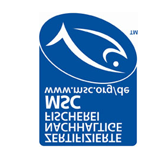 Imagine if you’re sick or injured and your doctor gives you the ‘all clear’ while still developing your treatment plan. You’d get a new doctor, right? Well, the latest tuna fishery recommended for Marine Stewardship Council (MSC) certification could be given the blue fish tick based on the same faulty logic. There are plans being developed to improve the fishery, but, so far, little evidence of action or results. The certification covers five purse seine vessels currently fishing for skipjack, yellowfin and bigeye tuna in the Indian Ocean,,, Read the rest here 16:04
Imagine if you’re sick or injured and your doctor gives you the ‘all clear’ while still developing your treatment plan. You’d get a new doctor, right? Well, the latest tuna fishery recommended for Marine Stewardship Council (MSC) certification could be given the blue fish tick based on the same faulty logic. There are plans being developed to improve the fishery, but, so far, little evidence of action or results. The certification covers five purse seine vessels currently fishing for skipjack, yellowfin and bigeye tuna in the Indian Ocean,,, Read the rest here 16:04
Greenpeace wins permission to take UK government to court over fish quotas
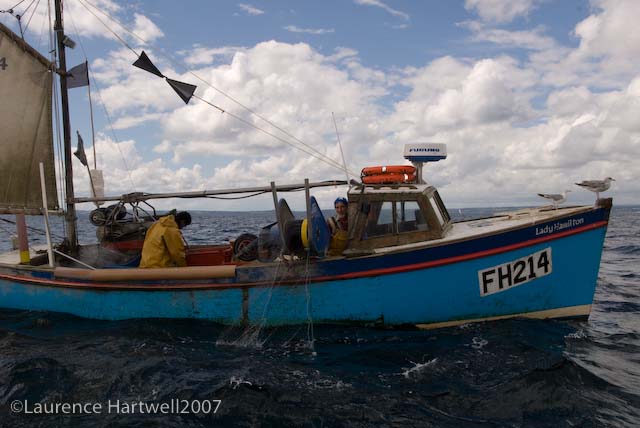 The UK High Court has given the green light for a full judicial review into whether the UK fishing quota allocation system is unlawful under new European law. The government has given out fishing quota in largely the same way since the mid-90s. About 95% of the fishing quota is awarded to the larger end of the fleet, most notably domestic and foreign controlled industrial fishing businesses – such as the vessel Cornelis Vrolijk – which we previously exposed. It’s symbolic of just how broken the system is. (Breaks in text are links that open in new windows) Read the rest here 21:52
The UK High Court has given the green light for a full judicial review into whether the UK fishing quota allocation system is unlawful under new European law. The government has given out fishing quota in largely the same way since the mid-90s. About 95% of the fishing quota is awarded to the larger end of the fleet, most notably domestic and foreign controlled industrial fishing businesses – such as the vessel Cornelis Vrolijk – which we previously exposed. It’s symbolic of just how broken the system is. (Breaks in text are links that open in new windows) Read the rest here 21:52Another Greenpeace Publicity Stunt! How’s your tuna ranked?
 There are lists for everything nowadays — and Greenpeace has a doozy for environmentally-conscious canned tuna lovers. The activist group on Monday released a ranking of 14 brands that examines “fundamental sustainability standards.” It found that three of the most popular brands, representing 80% of the American tuna mark, among the worst offenders: Bumble Bee, Chicken of the Sea and StarKist. Read the rest here 09:43
There are lists for everything nowadays — and Greenpeace has a doozy for environmentally-conscious canned tuna lovers. The activist group on Monday released a ranking of 14 brands that examines “fundamental sustainability standards.” It found that three of the most popular brands, representing 80% of the American tuna mark, among the worst offenders: Bumble Bee, Chicken of the Sea and StarKist. Read the rest here 09:43
Enviros Petition for Immediate and Permanent Rule Making to Prohibit Fishing for Gulf of Maine Cod
 Today’s petition, filed under the Administrative Procedure Act, urges the Fisheries Service to follow the Magnuson-Stevens Fishery Conservation and Management Act requirement to rebuild overfished species. The called for the Fisheries Service to prohibit fishing for Gulf of Maine cod, allowing catch only incidental to other targeted fish, and reduce such bycatch to levels that allow the cod population to rebuild. Read the rest here 13:33
Today’s petition, filed under the Administrative Procedure Act, urges the Fisheries Service to follow the Magnuson-Stevens Fishery Conservation and Management Act requirement to rebuild overfished species. The called for the Fisheries Service to prohibit fishing for Gulf of Maine cod, allowing catch only incidental to other targeted fish, and reduce such bycatch to levels that allow the cod population to rebuild. Read the rest here 13:33
Greenpeace’s cynical toytown fantasy – Fishing Body Rejects Basis for Greenpeace’s Divisive Court Action
 “Despite Greenpeace’s claims that they champion small boat fishermen, they have once again failed to think through the practical implications of what they are proposing. The UK’s need for a diverse fleet of large, medium and small vessels to take advantage of all its fishing opportunities is vital to the industry’s interdependence in supporting port infrastructures and ensuring continuation of supply.” Read the rest here 12:24
“Despite Greenpeace’s claims that they champion small boat fishermen, they have once again failed to think through the practical implications of what they are proposing. The UK’s need for a diverse fleet of large, medium and small vessels to take advantage of all its fishing opportunities is vital to the industry’s interdependence in supporting port infrastructures and ensuring continuation of supply.” Read the rest here 12:24
Greenpeace comes to the aid of Britain’s small fishing vessels – Lucky bastards!
 There may be plenty more fish in the sea according to some, but local fishermen are banned from catching them. The UK is sending many fishermen into bankruptcy by only offering them a fraction of the nation’s fishing quota, according to Greenpeace who on Friday, launched legal action against the government at the High Court. Sarah North, Greenpeace Head of Oceans campaign, Read the rest here 17:18
There may be plenty more fish in the sea according to some, but local fishermen are banned from catching them. The UK is sending many fishermen into bankruptcy by only offering them a fraction of the nation’s fishing quota, according to Greenpeace who on Friday, launched legal action against the government at the High Court. Sarah North, Greenpeace Head of Oceans campaign, Read the rest here 17:18
Etched in Stone – Oceana and Greenpeace think Best Available Science circa 1990 shouldn’t change! Stellar Sea Lion
 Hundreds of endangered Steller sea lions may die from loss of prey and habitat if the federal government allows more industrial fishing in the Aleutian Islands, environmentalists claim in court. Moreover, the groups say, the biological opinion issued by the National Marine Fisheries Service in April 2014 was condemned by many of its own scientists as “fundamentally flawed” because it relied on incomplete and inadequate Steller sea lion telemetry and sighting data. Read the rest here 10:13
Hundreds of endangered Steller sea lions may die from loss of prey and habitat if the federal government allows more industrial fishing in the Aleutian Islands, environmentalists claim in court. Moreover, the groups say, the biological opinion issued by the National Marine Fisheries Service in April 2014 was condemned by many of its own scientists as “fundamentally flawed” because it relied on incomplete and inadequate Steller sea lion telemetry and sighting data. Read the rest here 10:13
Oceana “Bering Sea 2014 canyon cruise” turns up fewer corals, more controversy
 A conservation group scientist, John Warrenchuk, of Oceana, said it could indicate the corals were wiped out by commercial net fishing, while a fishing industry scientist said they may never have grown there in the first place, and said existing records would show if any fishing had ever happened in the coral-free areas. Industry scientist John Gauvin, representing bottom trawlers, called for a review of data of fishing activity by area, based on data collected by observers onboard commercial fishing vessels. Read the rest here 09:12
A conservation group scientist, John Warrenchuk, of Oceana, said it could indicate the corals were wiped out by commercial net fishing, while a fishing industry scientist said they may never have grown there in the first place, and said existing records would show if any fishing had ever happened in the coral-free areas. Industry scientist John Gauvin, representing bottom trawlers, called for a review of data of fishing activity by area, based on data collected by observers onboard commercial fishing vessels. Read the rest here 09:12
Enviro Lawyer Lawsuit Filed to Protect Endangered Steller Sea Lions AGAIN!
 “We have been forced back to court once again by an agency that appears intent on sacrificing healthy ocean ecosystems for short-term economic gain,” said Michael LeVine, Pacific Senior Counsel for Oceana. “We hoped that the Fisheries Service would show the leadership needed to find long–term, sustainable solutions, but instead, we find ourselves back in court to defend the basic premise that sea lions need fish caught by industrial fisheries to survive.” Read the rest here 10:58
“We have been forced back to court once again by an agency that appears intent on sacrificing healthy ocean ecosystems for short-term economic gain,” said Michael LeVine, Pacific Senior Counsel for Oceana. “We hoped that the Fisheries Service would show the leadership needed to find long–term, sustainable solutions, but instead, we find ourselves back in court to defend the basic premise that sea lions need fish caught by industrial fisheries to survive.” Read the rest here 10:58
Arrogance Ignorance and Greenpeace
 Just in case you have not heard the story – here is a brief summary. In Peru at night a group of Greenpeace activists drove a jeep up to one of the ancient Nasca outlines then trampled over the area laying out a piece of Greenpeace propaganda. According to the outraged Peruvian government ( as well as assorted other experts) the group did irreparable damage to the area. Read the rest here, and check out the wind power category! 09:57
Just in case you have not heard the story – here is a brief summary. In Peru at night a group of Greenpeace activists drove a jeep up to one of the ancient Nasca outlines then trampled over the area laying out a piece of Greenpeace propaganda. According to the outraged Peruvian government ( as well as assorted other experts) the group did irreparable damage to the area. Read the rest here, and check out the wind power category! 09:57Eco Imperialists WWF, Greenpeace – Disappointing Outcome at Pacific Fisheries Meet
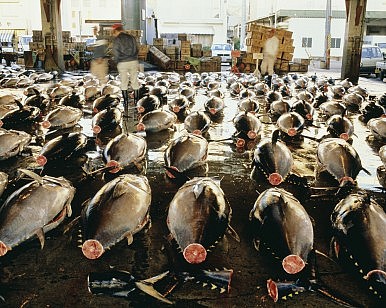 Delegates from Pacific Island nations had planned to form a united force at the Samoa meeting, calling on the body that manages the fishery to urgently adopt a number of conservation measures at its annual meeting. Greenpeace is reporting than none of the measures were adopted. Journalists were not permitted to attend the final session of the meeting. Read the rest here 11:42
Delegates from Pacific Island nations had planned to form a united force at the Samoa meeting, calling on the body that manages the fishery to urgently adopt a number of conservation measures at its annual meeting. Greenpeace is reporting than none of the measures were adopted. Journalists were not permitted to attend the final session of the meeting. Read the rest here 11:42
Greenpeace – Just 97 of the ‘world’s cutest’ sea mammals remain – Are these people for real?!?!
One of the world’s “cutest” sea mammals is at risk of extinction unless a ruling is passed to protect the vaquita porpoise.  Mexico has one last chance to save the creature – a small, shy porpoise, described by one scientist as looking like “they’re wearing lipstick and mascara”. It is only found in a 4,000sq km region of the Gulf of Mexico Read the rest here 20:25
Mexico has one last chance to save the creature – a small, shy porpoise, described by one scientist as looking like “they’re wearing lipstick and mascara”. It is only found in a 4,000sq km region of the Gulf of Mexico Read the rest here 20:25
Is there a Global Illegal Fishing Crisis? A Quick Look at the Problems with Fisheries Crime Estimation
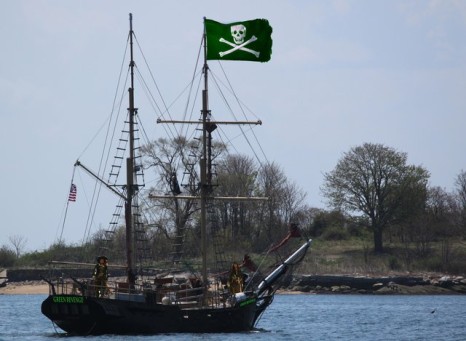 A leading issue in the marine conservation arena is the global and large-scale nature of illegal fishing. Various NGOs have made Illegal, Unreported, and Unregulated (IUU) Fishing a key target of their campaigns, and indeed, you find that IUU is generally used as a proxy term for “illegal fishing”. Just off the top of my head, I can tell you that ,,, Read the rest here 15:36
A leading issue in the marine conservation arena is the global and large-scale nature of illegal fishing. Various NGOs have made Illegal, Unreported, and Unregulated (IUU) Fishing a key target of their campaigns, and indeed, you find that IUU is generally used as a proxy term for “illegal fishing”. Just off the top of my head, I can tell you that ,,, Read the rest here 15:36






 Conservationists are trying to determine a way forward after the annual Commission for the Conservation of Antarctic Marine Living Resources (CCAMLR) meeting ended on Friday. Representatives of 25 nations gathered in Hobart over 10 days for the CCAMLR meeting. The Antarctic Ocean Alliance, a coalition of 30 environmental groups including , said Russia and China blocked,,,
Conservationists are trying to determine a way forward after the annual Commission for the Conservation of Antarctic Marine Living Resources (CCAMLR) meeting ended on Friday. Representatives of 25 nations gathered in Hobart over 10 days for the CCAMLR meeting. The Antarctic Ocean Alliance, a coalition of 30 environmental groups including , said Russia and China blocked,,, 


























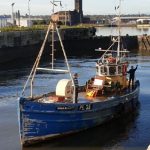


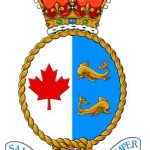

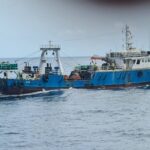

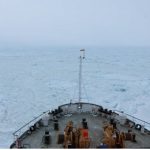
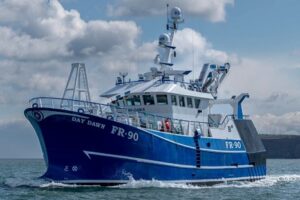



Greenpeace whines about John Sackton’s seafoodnews.com pollock redlisting comment while kissing undercurrents fanny
After numerous suggestions to Seafood.com’s John Sackton that his stories about Greenpeace might be more accurate if he took the time to check in with us, we finally concluded that if his biases were obvious to us, they were probably obvious to others as well. Read the rest here 08:31
Share this post